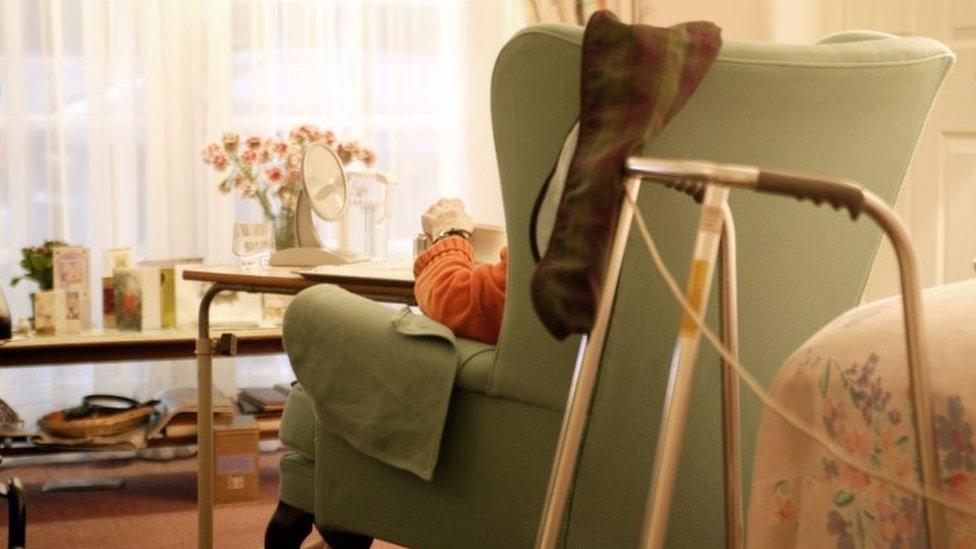Migration adviser: Social care needs 'proper wages'
- Published

Problems in the social care sector must be fixed by "properly funding" it, not "fiddling about with immigration", the new head of the Migration Advisory Committee has said.
Prof Brian Bell said with "proper wages", it would attract more people, cutting the need for migrant workers.
He was being questioned by MPs on the government's immigration bill.
The bill will create a new "points based system" that critics say could stop care workers coming to the UK.
Points will be awarded for being able to speak English to a certain standard, having a job offer from an approved employer, being on a list of shortage occupations and meeting a salary threshold of £25,600.
But with many social care workers on the national living wage of £8.72 an hour, many would not meet the final requirement.
Appearing before the Home Affairs Committee, Prof Bell said workers would need to be paid between "£10 and £12 as an hourly wage before you make that sector attractive".
The immigration bill is going through its stages in the House of Commons, having passed its first hurdle with support of a majority of MPs.
It is not clear what date the legislation will return for more scrutiny, but it is due to come into force on 1 January if passed.
Prof Bell said the government would need to keep an eye on employment figures - especially in light of the coronavirus outbreak - and said the Migration Advisor Committee (MAC) has "no problem making it clear to the government if...vacancies can't be filled" by British workers.
The MAC is an independent public body that advises the government on migration issues.
Skills not 'valued'
Member of the committee, Conservative MP Simon Fell, said the coronavirus crisis had shown "key and essential workers are not necessarily valued by salary in the same way society might set that expectation at".
He asked Prof Bell if that was causing him to re-evaluate the government's plans.
Prof Bell said the balance "tilted towards higher earners with more skills" was "broadly right" in the new immigration system, but warned there could be teething problems.
He told the committee that social care was a "classic example" where skills were not "valued" with higher salaries.
"The Migration Advisory Committee have continuously pointed out that really the problems of social care are nothing to do with immigration systems, it is to do with the fact it is not properly funded.
"And if the system was properly funded, wages could rise in that sector. That would [lead to] more attractive jobs for people to take up and potentially you wouldn't need immigration to be helping out in the social care sector."
'Wage premium'
Asked by the committee's chair, Labour's Yvette Cooper, what the wages should rise to, Prof Bell suggested it would have to be between £10 and £12 an hour, adding: "The basic problem with that sector is that it is very hard work [which] no one doubts that.
"It's very stressful work a lot of the time, and if your alternative is to go and work in Aldi… I am not sure why it is attractive."
He said: "Some people will be very committed to social care and that's great. But what you are trying to get is people who haven't even thought of a career in social care to move into it.
"There needs to be a significant wage premium to reflect the difference in that job, relative to other roundabout minimum wage jobs that require a less stressful and less hard environment."